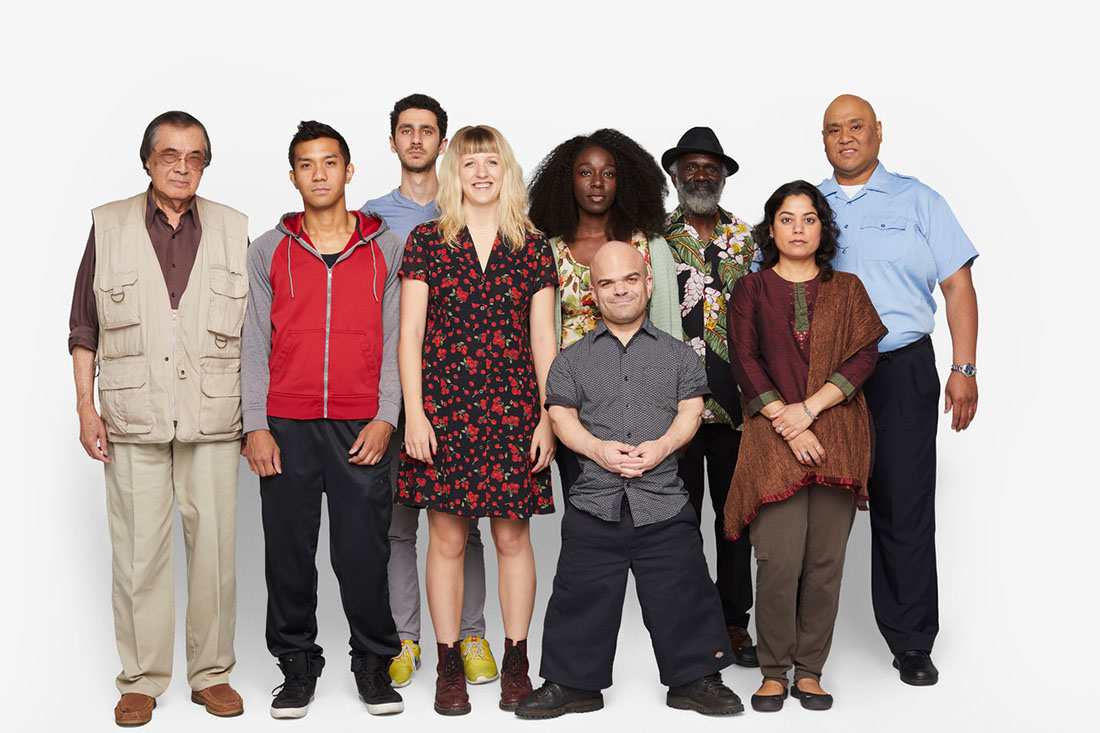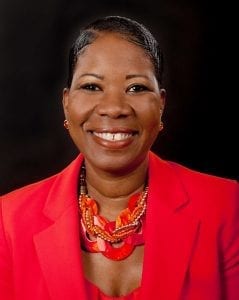
02 Nov Understanding the All of Us Research Program: A dialogue with Dara Richardson-Heron, MD
Journal of the Association of Nurses in AIDS Care
 What are the overall goals of the All of Us Research Program?
What are the overall goals of the All of Us Research Program?
The All of Us Research Program is an unprecedented effort designed to enroll one million or more diverse individuals living in the United States who will volunteer their health data over the course of a decade. The program is open to people, both healthy and sick, from all communities. Unlike a single research study focused on a specific disease or population, All of Us will serve as a national research resource to inform thousands of studies, covering a wide variety of health conditions.
The program aims to build one of the largest health databases of its kind. As the volume of data grows, patterns will emerge that wouldn’t be visible at a smaller scale. In addition, a program of this kind can lead to a new model of research based on collaboration among researchers, providers, and participants. We also want to deliver a hugely valuable, rich data resource that will be accessible in unprecedented ways.
It is our top priority to achieve a demographically, geographically, and medically diverse participant community. A diverse participant community will help fill gaps in our scientific knowledge and help to ensure that communities are not left behind in prevention strategies and cures. The program takes a broad view of diversity to include: race/ethnicity; geography; age; sex, gender, and sexual orientation; income; education; health care access; and health status.
How is the All of Us Research Program relevant to the HIV Community?
People with HIV are incredibly knowledgeable about clinical research, and many within the community have participated, or are currently participating, in trials. For this community, the opportunity represented by All of Us is the ability to translate this participation into a larger platform to learn about health issues in people with HIV. This is important because many people are now surviving and aging with HIV. While a growing number of new infections are among people over 50 years of age, the majority of people aging with HIV are long-term survivors.
Because of accelerated aging from the virus, people with HIV often develop conditions associated with aging at a higher rate and an earlier age than those who are HIV uninfected. These conditions include cancer and neurocognitive problems as well as cardiovascular, chronic respiratory, liver, and kidney diseases. They are also more vulnerable to osteoporosis caused by the long-term use of antiretroviral medication. I know that the medical community is working hard to understand how best to treat these non-AIDS-related conditions in conjunction with HIV.
Why Should Nurses Be Knowledgeable About All of Us?
Nurses are some of the most trusted individuals in medicine and have the power and credibility to serve as important validators for the program. They also have the ability to discuss and explain the potential this type of project has to change the health of current AND future generations.
Potential participants will want to know what their health care provider thinks about precision medicine, and what impact it may have for them, their children, and future generations of their families.
Is There a Role for Nurse Researchers in this Program?
All of Us aims to build one of the world’s largest data sets for health research. The data set is expected to be ready in 2019. These data will be accessible to all researchers, including nurse researchers. We want to encourage diversity among the researchers who can use the data, so our goal is to make as much of it as possible available to all researchers, from all backgrounds.
In Addition to Race and Ethnicity, Will Participants Need to Identify as LGBT?
Participants will have the opportunity to indicate their sexual orientation, and for the first time in a large-scale federal survey, the All of Us Research Program will ask a participant’s sex assigned at birth and their current gender identity. While these questions are optional, the program recognizes the need for increased health data for the LGBTQI community and is continually taking steps to increase representation not only for sexual and gender minorities, but also for all communities that have been historically underrepresented in biomedical research.
Will Participants Need to Disclose Their Citizenship Status to Be Able to Participate?
No, the All of Us Research Program does not ask about citizenship status.
Are Homeless People Able to Participate Without Digital or Phone Access?
Some All of Us Research Program activities happen online. Participants will need to use a computer, tablet, or smartphone to complete them. If participants do not have their own device, they are welcome to visit the All of Us Research Program website from a computer at their local library.
How Will Confidentiality Be Maintained for Participants?
Participant privacy is very important, and we will take great care to protect it. Here are a few of the steps we will take for ALL participants:
- Information the program collects will be stored on protected computers. We will limit and keep track of who sees the information.
- Names and direct identifiers are removed and replaced with a code. There is a secure master list linking codes to names. Very few people have access to it.
- Researchers must abide by all confidentiality standards.
- The All of Us Research Program has Certificates of Confidentiality from the U.S. government. This will help us fight legal demands (such as a court order) to give out information that could identify participants.
How Can Researchers and Clinicians Have Access to This Data?
All of Us aims to build one of the world’s largest data sets for health research, which we expect to be ready in 2019. These aggregate data will be publicly accessible and exclude single participant-level data. To get access to additional information, researchers must submit a research plan. If approved, researchers will have to go through ethics training and adhere to a data use agreement and code of conduct developed to enhance protection of participant privacy.
When Can We Expect Publications from the Data?
Data will start to become available for researchers in 2019. Approved researchers can use these data to conduct thousands of health-related studies. It is up to the researchers to determine when they publish their findings.



